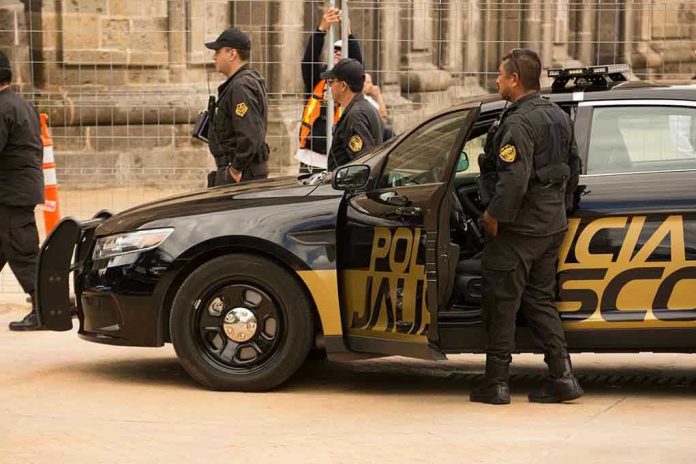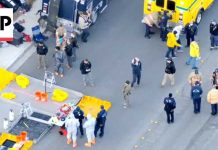
A car bomb meant for Italy’s most dogged investigative journalist detonates just 20 minutes after his daughter parks the family car—no one is hurt, but the explosion sends shockwaves through the country’s fragile democracy and exposes the real price of exposing the truth.
Story Snapshot
- On October 16, 2025, a bomb packed with 1kg of explosives detonated near the car of Sigfrido Ranucci, host of Rai 3’s investigative program Report, in Pomezia near Rome—Ranucci’s daughter had parked the car just 20 minutes earlier; no injuries, but two vehicles and a nearby home were damaged.
- Ranucci, a veteran journalist known for exposing mafia and corruption, has been under police protection since 2010, with security ramped up in 2021 after repeated threats—yet the attack still occurred, signaling a dangerous escalation.
- The bombing is widely condemned as a direct assault on press freedom, prompting urgent parliamentary hearings, maximum protection orders from the Interior Minister, and intense scrutiny of Italy’s ability to safeguard journalists.
- This incident follows a pattern of intimidation against Ranucci, including bullets left at his home and episodes of his show being cut by Rai management—raising serious questions about institutional pressures on investigative journalism.
- The attack has triggered a national debate about the safety of journalists, the influence of organized crime, and the future of media freedom in Italy and beyond.
The Bomb That Shook Italy’s Conscience
Sigfrido Ranucci’s name is synonymous with fearless journalism in Italy. For over three decades, his program Report has exposed corruption, mafia infiltration, and systemic abuse of power. His work has made him a target before—police protection since 2010, enhanced in 2021, bullets left at his doorstep in 2024—but the October 16, 2025 bombing marks a stark escalation. The device, planted near his car in Pomezia, a quiet suburb of Rome, detonated just after his daughter had parked and walked away. The message was clear: no one close to Ranucci is safe, and the perpetrators are brazen enough to strike despite round-the-clock surveillance.
Italian investigative journalism TV host targeted in bomb attack near Rome | Italy | The Guardian https://t.co/qBKeoMOpOQ
— Charlotte Bayati (@CharlotteBayati) October 17, 2025
The attack did not happen in a vacuum. Ranucci’s recent testimony before the European Parliament highlighted a disturbing trend of surveillance and intimidation against journalists in Italy. His employer, the public broadcaster Rai, has faced criticism for cutting episodes of Report and disciplining Ranucci—unprecedented moves in the show’s 30-year history. These actions, combined with the physical threats, suggest a multi-front campaign to silence one of Italy’s most influential voices for accountability.
Who Wants Sigfrido Ranucci Silenced—And Why?
Ranucci’s investigations have long angered Italy’s criminal underworld, particularly the N’drangheta, one of the country’s most powerful mafia groups. His reporting has also ruffled feathers in political and business circles, where corruption often intersects with organized crime. The Italian Interior Ministry, responsible for Ranucci’s protection, has ordered maximum security measures—armored cars, armed escorts—but the fact that the attack occurred at all raises questions about the effectiveness of these safeguards.
Rai management, meanwhile, faces accusations of bowing to political pressure. The decision to cut episodes of Report and discipline Ranucci suggests internal tensions between journalistic independence and institutional loyalty. The government, opposition parties, and international press freedom organizations are now demanding answers: How did this happen under police protection? Who is really pulling the strings? And what does this say about the state of democracy in Italy?
The Ripple Effects of an Attack on Journalism
The immediate impact is a chilling effect on investigative reporting. Journalists across Italy are reassessing their safety, and some may think twice before pursuing stories that challenge powerful interests. The public, already skeptical of institutions, may lose further trust in the media’s ability to hold power to account. For Ranucci’s family, colleagues, and viewers, the attack is a grim reminder of the personal risks inherent in seeking the truth.
Long-term, the bombing could lead to heightened security for all high-profile journalists in Italy, but it may also push some toward self-censorship. The economic and social costs are real: a less vigilant press means more room for corruption and organized crime to flourish. Politically, the government is under pressure to reform journalist protection laws and demonstrate that it can defend democratic values against both criminal and institutional threats.
What Comes Next for Press Freedom in Italy?
The Anti-Mafia Investigation Division is leading the probe, but as of now, no suspects have been named. Opposition parties are calling for urgent parliamentary hearings, and the Interior Minister has pledged to review and strengthen protective measures. International organizations like the International Federation of Journalists have condemned the attack as an “alarm for media freedom,” warning that Italy’s reputation as a democracy is at stake.
Academic and professional commentary underscores the systemic nature of the threats facing journalists in Italy. Ranucci’s case is not isolated—it is part of a broader pattern of repression that includes surveillance, intimidation, and now, explosive violence. The question is whether Italy’s institutions will respond with meaningful reforms or allow fear to dictate the boundaries of free speech.
The Stakes for Democracy—And for All of Us
When a journalist like Sigfrido Ranucci is targeted, it is not just one man at risk—it is the principle of a free press, the right of citizens to know, and the health of democracy itself. The attack near Rome is a wake-up call, not just for Italy, but for all societies where organized crime and corruption seek to operate in the shadows. The outcome of this case will signal whether a nation can protect its truth-tellers, or whether fear will win the day.




